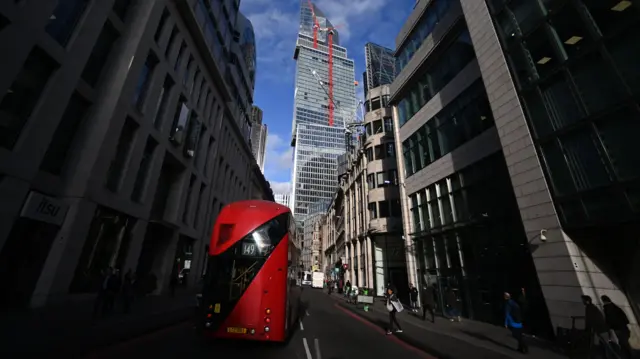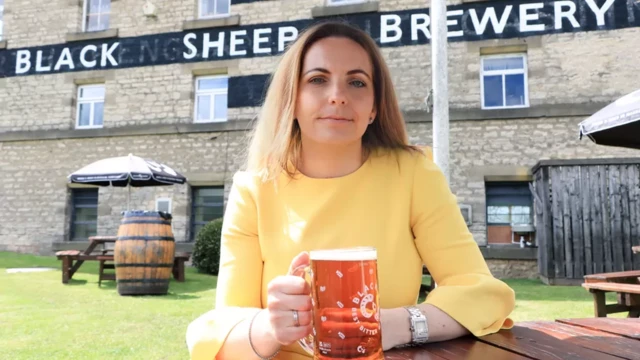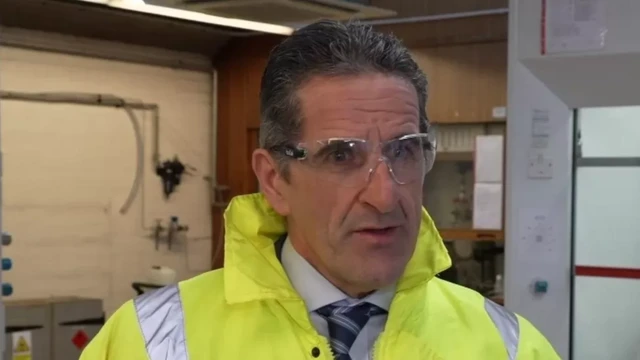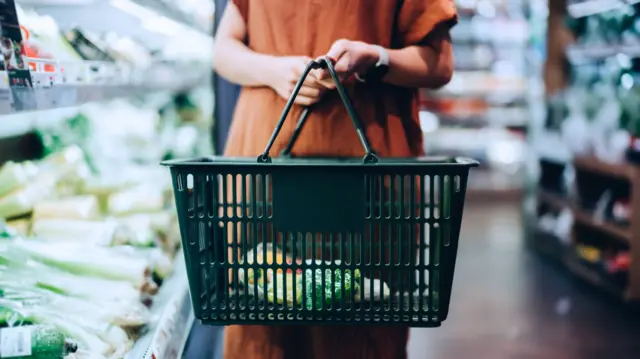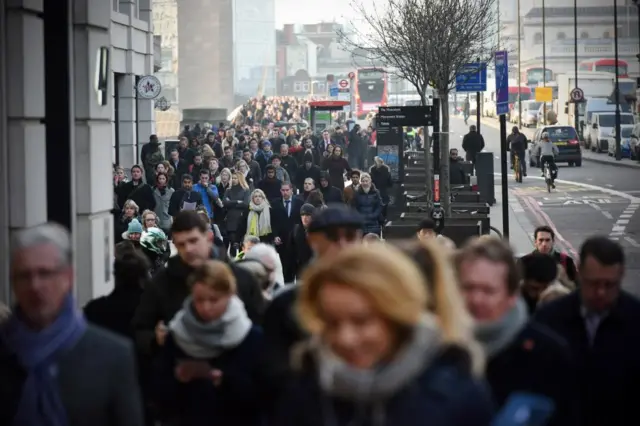Thank you for joining uspublished at 16:25 GMT 13 January 2023
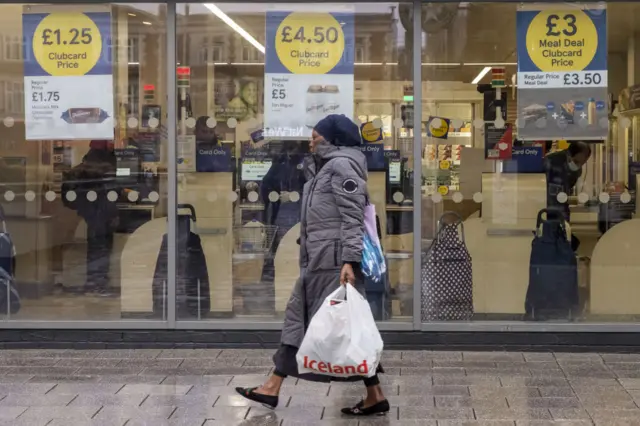 Image source, Getty Images
Image source, Getty ImagesWe're now wrapping up our live coverage, which looked at the state of the UK economy and how different sectors of society have been feeling the pressure amid the cost of living crisis.
Here are some of today's headlines:
- The UK economy grew by 0.1% in November, which was better than analysts had expected
- Pubs and restaurants contributed to the slight growth as people went out to watch World Cup games, the ONS says
- In light of today's figures, Chancellor Jeremy Hunt pledged to "stick to the plan to halve inflation this year so we get the economy growing again"
- You sent in your burning questions and the BBC's head of statistics, Robert Cuffe, and personal finance analyst Myron Jobson answered them
- Today's news makes it less likely for the UK to have entered a recession in 2022, but the Resolution Foundation says the Bank of England and the OBR are forecasting the UK economy to contract through much of 2023 - and therefore enter a recession
- Although the economy is in a better position than forecasters expected, families and businesses continue to feel the pressure of rising bills
- We've been hearing testimonies from those having to make drastic changes to their lifestyle amid the cost of living crisis
Thank you for joining us. Our editors were Jeremy Gahagan, Nathan Williams, James Harness and Sarah Fowler. And today's writers were Gem O'Reilly, Sam Hancock, Nick Edser, Adam Durbin, Malu Cursino, George Wright and Michael Sheils McNamee.
